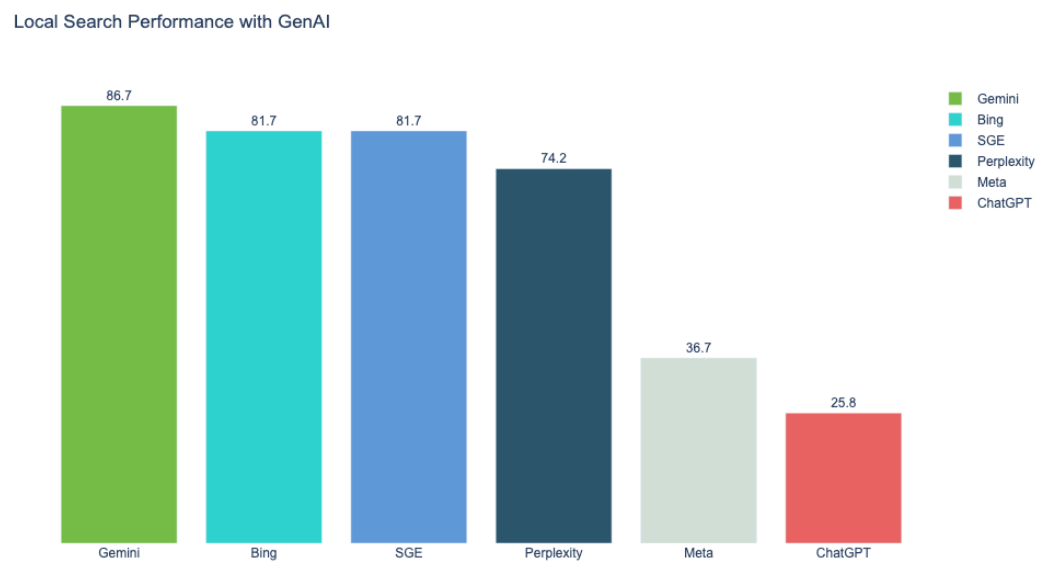Last week, I wrote about the rising search costs, with CPC and CPL both going up dramatically in the last year.
There are a number of ways AI and automation can help with offsetting those specific rises, but today I want to shine a light on one particular AI use that is doing publishers no favors in terms of search.
As anyone who’s paid attention to AI news might have guessed, I’m referring to Google’s recently announced AI Overviews.
In its most-simple, theoretical terms, AI Overviews do seem innocently effective. As text that appears at the top of Google’s Search Results when Google “determine[s] that generative responses can be especially helpful,” these results would, in theory, appear to help both google-searcher and quality-publisher alike in prioritizing and elevating the crème de la crème. (Just as soon as it works out some of the pesky pizza-glue kinks, of course.)
But in practice, anything below the summary becomes essentially irrelevant, with the generated text summary either hiding links in a “Show More” box or all but burying publisher links below the scroll-down fold. As Press Gazette’s David Buttle puts it, Google’s new development is “expressly designed to negate the need to visit another website.”
“The issue here is that AI Overviews only work because content creators, including publishers, have given Google permission to crawl their sites in order that they are indexed for search,” Buttle writes. “This is a violation of the already-flawed grand bargain sitting between Google and publishers.”
Buttle spells out the basics of publishers long having traded their IP for Google traffic that could then drive advertising and subscriptions, but without the delivered upon referral traffic or the ability for publishers to opt out of AI Overviews without also removing themselves from Search altogether, Google breaks the agreement and “abuse[s] the market power.”
“The final twist of the knife — as if one were needed — is that it is now serving ads against AI Overviews,” Buttle writes.
Adweek asked various media and SEO experts about the potential declines in organic search traffic, with damage “ranging from 20% to 60%” and, according to one expert, ad revenue loss “as much as $2 billion annually across the publishing industry.”
In response, Google’s VP and GM of Search Ads, Shashi Thakur, told Marketing Brew it’s about “satisfying user needs.”
“In commercial queries, things that deserve a commercial action, there’s always a need to click through to somebody — whether it’s an insurer, or a merchant, or a travel site,” Thakur says. “There’s always a need to click through to complete your action. Given that, there’s always an opportunity for advertising to come in and bid for that.”

SOCi’s scoring of local searches, prior to AI Overviews launch
(Source: SOCi)
Shortly before Google’s announcement, SOCi tested many generative AI platforms — including Google’s Search Generative Experience, which AI Overviews has replaced — on their local search performance, scoring them on relevance, clear links, helpful information and photos, and more. Google’s SGE tied with Bing to come in second, both slightly behind Gemini.
Buttle’s recommendations to publishers include reducing any reliance on Google and focusing “with precision on serving their readers’ high-stakes information needs with distinctive content.” On the marketing side, experts like Neil Patel are forecasting a “major impact … but it’s best not to panic.”
Unfortunately for publishers, with Google being as ubiquitous as it is, the effects on site traffic will likely be revealed sooner rather than later.
SEE FOR YOURSELF
The Magazine Manager is a web-based CRM solution designed to help digital and print publishers manage sales, production, and marketing in a centralized platform.




